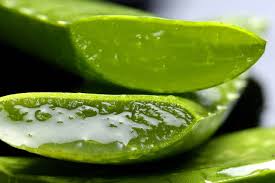What are the benefits of aloe vera?
Aloe vera, or Aloe barbadensis, is a thick, short-stemmed plant that stores water in its leaves. It is best known for treating skin injuries, but it also has several other uses that could potentially benefit health.
This article lists eight potential health benefits of aloe vera. It also covers some of the risks associated with use.
1. It contains healthful plant compounds
The cosmetic, pharmaceutical, and food industries use aloe vera extensively, and the plant has an estimated annual market value of $13 billionTrusted Source globally.
Aloe vera is known for its thick, pointed, and fleshy green leaves, which may grow to about 12–19 inches (30–50 centimeters) in length.
Each leaf contains a slimy tissue that stores water, and this makes the leaves thick. This water filled tissue is the “gel” that people associate with aloe vera products.
2. It has antioxidant and antibacterial properties
Antioxidants are important for health. Aloe vera gel containsTrusted Source powerful antioxidants belonging to a large family of substances known as polyphenols.
These polyphenols, along with several other compounds in aloe vera, help inhibit the growth of certain bacteria that can cause infections in humans.
Aloe vera is known forTrusted Source its antibacterial, antiviral, and antiseptic properties. This is part of why it may help heal wounds and treat skin problems.
3. It accelerates wound healing
People most often use aloe vera as a topical medication, rubbing it onto the skin rather than consuming it. In fact, it has a long history of use in treating sores, and particularly burns, including sunburn.
The United States Pharmacopeia describe aloe vera preparations as a skin protectant as early as 1810–1820.
Studies suggest that it is an effective topical treatment for first and second degree burns.
For example, a reviewTrusted Source of experimental studies found that aloe vera could reduce the healing time of burns by around 9 days compared with conventional medication. It also helped prevent redness, itching, and infections.
The evidence for aloe vera helping heal other types of wound is inconclusive, but the research is promising.
4. It reduces dental plaque
Tooth decay and diseases of the gum are very common health problems. One of the best ways to prevent these conditions is to reduce the buildup of plaque, or bacterial biofilms, on the teeth.
In a mouth rinse studyTrusted Source of 300 healthy people, researchers compared 100% pure aloe vera juice with the standard mouthwash ingredient chlorhexidine.
After 4 days of use, the aloe vera mouth rinse appeared to be just as effective as chlorhexidine in reducing dental plaque.
Another studyTrusted Source found similar benefits of aloe vera mouth rinse over a 15- to 30-day period.
Aloe vera is effective in killing the plaque-producing bacterium Streptococcus mutans in the mouth, as well as the yeast Candida albicans.
5. It helps treat canker sores
Many people experience mouth ulcers, or canker sores, at some point in their lives. These usually form underneath the lip, inside the mouth, and last for about a weekTrusted Source.
Studies have shown that aloe vera treatment can accelerate the healing of mouth ulcers.
For example, in a 7-day studyTrusted Source of 180 people with recurrent mouth ulcers, applying an aloe vera patch to the area was effective in reducing the size of the ulcers.
However, it did not outperform the conventional ulcer treatment: corticosteroids.
In another studyTrusted Source, aloe vera gel not only accelerated the healing of mouth ulcers, it also reduced the pain associated with them





No comments:
Post a Comment